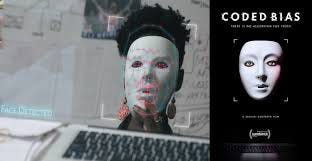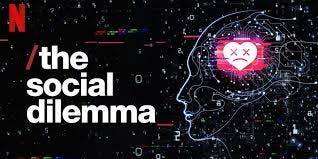#39 Info / Desinfo #MediaLiteracy&Disinformation. 2nd May 2024
Monthly bulletin on media literacy, disinformation and regulation from the Ukrainian editorial team
Hello!
In today's interconnected world, where information travels at the speed of light, the importance of fact-checking cannot be overstated. Misinformation, whether intentionally or unintentionally, can have significant consequences, from shaping public opinion to influencing decision-making processes. Thankfully, technological advancements, particularly in artificial intelligence (AI), have paved the way for more efficient and accurate fact-checking methodologies.
Don’t forget to stop by our great Roni’s illustration! She did a great job. Be generous with your comments!
Illustrator: Roni Milovanova
Exploring AI Tools for Fact-Checking
Here, we delve into a selection of pioneering AI-driven platforms at the forefront of the battle against misinformation.
1. ClaimBuster is a pioneering AI tool that harnesses the power of natural language processing (NLP) and machine learning algorithms to identify and analyze claims made in the text. By automatically scanning vast amounts of content, ClaimBuster assists fact-checkers in prioritizing which statements warrant further investigation, thereby streamlining the fact-checking process.
2. Factmata is at the forefront of the fight against misinformation. It is an AI-driven platform employing sophisticated machine-learning techniques to detect and analyze misleading or false information online. By leveraging data science and natural language understanding, Factmata equips users with robust fact-checking tools to combat the spread of misinformation across various digital platforms.
3. Logically is a free app and browser extension that uses AI to spot false information online by analyzing text, images, and videos. Users can also submit fact-checking requests and share findings with others, making it easy to stay informed with reliable information.
4. In the battle against misinformation, Hoaxy emerges as a valuable ally. Employing AI to visualize the spread of claims and fact-checking online, Hoaxy tracks the dissemination of misinformation across social media platforms and websites, providing valuable insights into the dynamics of information sharing in the digital age.
5. Deepnews is an AI-powered platform that curates and analyzes news articles using machine learning algorithms. By evaluating the credibility and reliability of news sources, Deepnews assists users in navigating the vast landscape of online information, facilitating informed decision-making and enhancing media literacy.
Quiz on Fact-Checking
In today's digital age, misinformation spreads rapidly across various online platforms, often leading to confusion and misinterpretation of facts. This quiz assesses your awareness of misinformation and ability to discern reliable information from false claims.
Below are the correct answers and instructions for calculating your results. Please do not scroll before you take the test.
Are you ready to put your misinformation awareness to the test? Let's begin!
1. What is Logically used to detect false information online?
a) Human editors
b) AI technology
c) Community Voting
d) Random selection
2. Which types of content does Logically analyze for inaccuracies?
a) Text only
b) Text and images
c) Text, images, and videos
d) Text and links
3. What can users do on Logically's platform besides using the fact-checking feature?
a) Chat with friends
b) Share memes
c) Submit fact-checking requests
d) Play games
4. How does Logically help users stay informed?
a) By providing daily horoscopes
b) By offering cooking recipes
c) By ensuring access to reliable information
d) By promoting conspiracy theories
5. What percentage of vulnerability to misinformation do you think you have? (Select one)
a) 0-25%
b) 26-50%
c) 51-75%
d) 76-100%
Correct Answers:
1 – b) AI technology;2 – c) Text, images, and videos;
3 – c) Submit fact-checking requests;
4 – c) By ensuring access to reliable information;
5 – Any answer is correct.
You get one point for each correct answer, except the last one. To calculate your result, you should do a formula: (Your Points / 4) * 100%
Based on your score, here's your vulnerability to misinformation:
- 0-25%: Very high vulnerability
- 26-50%: High vulnerability
- 51-75%: Moderate vulnerability
- 76-100%: Low vulnerability
Take a moment to reflect on your results and consider how you can further enhance your awareness of misinformation
What to watch about Fact-Checkin
1. “The Cleaners,” an eye-opening documentary, delves into the world of content moderators tasked with fact-checking and removing harmful content from social media platforms. Through intimate interviews and captivating footage, “The Cleaners” explores the ethical dilemmas and challenges faced by those on the front lines of online content moderation.
2. Delving into the intersection of artificial intelligence and societal biases, “Coded Bias” sheds light on the inherent biases present in AI algorithms and their implications for fact-checking and information verification. Through compelling storytelling and expert interviews, the film urges viewers to critically examine the role of technology in shaping our perceptions of truth and reality.
3. “The Social Dilemma” is a documentary examining the influence of social media platforms and their algorithms on spreading misinformation. While it doesn't focus on fact-checking, the film highlights how algorithms prioritize engagement over content accuracy, contributing to disseminating false information. Through interviews and expert analysis, it prompts viewers to reconsider the societal impacts of unchecked misinformation in the digital age.
In conclusion, the emergence of AI-powered fact-checking tools represents a significant milestone in the ongoing battle against misinformation. From ClaimBuster's text analysis capabilities to Hoaxy's visualization of information dissemination, these innovative tools leverage the power of artificial intelligence to enhance the accuracy and efficiency of fact-checking processes.
Not only do they simplify the verification process, but they also give users the confidence to navigate the intricate online content landscape. As we persist in our fight against misinformation, incorporating artificial intelligence into fact-checking procedures will undoubtedly be crucial in upholding truth and integrity in the information ecosystem.
Thank you for being with us today. See you next month!
Editorial team: Kateryna Horska (Editor-in-chief), Anastasiia Kerpan (Head Editor), Roni Milovanova (Designer)








